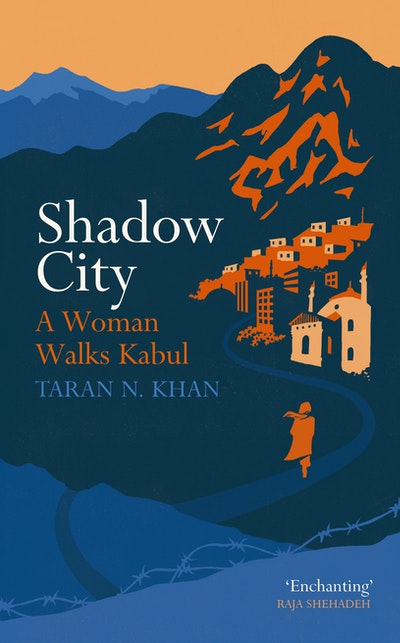- Published: 7 November 2019
- ISBN: 9781473553507
- Imprint: Vintage Digital
- Format: EBook
- Pages: 288
Shadow City
A Woman Walks Kabul
- Published: 7 November 2019
- ISBN: 9781473553507
- Imprint: Vintage Digital
- Format: EBook
- Pages: 288
Any reader of this book is sure to discover a Kabul so unlike what the media portrays. Taran’s love of her city comes across in her enchanting evocation of a city where so many tragedies echo from across Kabul’s decades of war. On her last walk, she writes: "to leave Kabul was to take it with you." This is what happened when I finished reading this book, I took Kabul with me
Raja Shehadeh, author of Palestinian Walks
Through these deep and compassionate portraits of ordinary people who call Kabul home, Taran Khan tells the story of the city through war and peace as never told before. At a time when deep uncertainly hangs over Afghanistan’s future once again, Shadow City provides an invaluable perspective on life in its capital
Snigdha Poonam
An intricate, intimate portrait of a heartbreaking city, its people and its past, written with nuance, love and attention. In her multi-dimensional memoir Taran Khan explores Kabul as she wanders – through its streets but also its literature, its politics but also its passions – revealing as she does her own exacting, compassionate sense of what the city was and can still be
Alice Albinia, author of Empires of the Indus
Taran Khan invites and leads us into a wonderful journey through the streets of Kabul, its history and culture. Step by step with her, we breathe in the city’s air of mysticism and mystery, walk through gardens full of myths and secrets, and we caress the wounds and scars of war on the skin of the city and cross the bridge that is built over the river between Indo-Greek civilization
Atiq Rahimi
Shadow City moved me to tears... In the service of Kabul and Afghanistan, a region of the world about which we imagine we know much more than we actually do, no book has done a more honest and heart-warming job in recent years... Thrilling
Supriya Nair, Mumbai Mirror
Offers a unique on-the-ground view of the city...a refreshing counterpoint to the macho foreign correspondent genre... Khan’s interviews during her walks powerfully evoke the fluctuating mood in a city that is trying to heal itself
Amelia Gentleman, Guardian
Khan asks important questions of cities that have witnessed trauma in the palimpsests of what remains. The book carries valuable insights into the effects of war -- the fragility of books, films, ways of life; addiction as a war wound; the instability of 'home'. Mostly, it reminds us of the power of words to represent ways of seeing
Piya Srinivasan, India Today
Traces the lost glory of the city and narrates contemporary miseries. A moving memoir...and a subtle dive into history
Ashutosh Bhardwaj, Financial Express
Sparkling...a city and a part of the world that is particularly suited to the elegy... The Kabul stories Khan collects are like that: silent screams for a city that was and the city it could be
Vikram Shah, Mint Lounge
A lyrical discovery... As a Muslim woman from India, Khan is able to present a unique social and historical perspective
Edward Girardet, Global Geneva
These stories conjure a magic in the labyrinthine streets and reveal a fragile city in a state of flux, shape-shifting and flickering with the promise of peace
Sophie Lam
By excavating Afghanistan's forgotten past, Khan rescues its future, too. Her lyrical prose brings to life the most daring truth a writer can offer: that these tragedies were not preordained, and another Afghanistan is possible
Anand Gopal, author of No Good Men Among the Living
Shadow City is no conventional travel book. For Khan gives us a Kabul of the imagination: it is the city that was, less the city that is, that fascinates her. Her perambulations represent a form of "bipedal archaeology", an exercise in exhuming the past and probing the lost... It is easy to cast Kabul as a tragic mess of a metropolis, but Khan illuminates its life-affirming humanity
Oliver Balch, Times Literary Supplement
On the surface, Kabul is a city caught "between the hope of peace and the habit of violence." The deeper reality, though, is even more complex and layered: like Kabul's actual lanes, those that map its character "twist and vanish . . . like well-kept secrets." It is an elusive, illusive place - bood, nabood, now you see it, now you don't. Taran Khan's achievement is to have caught it in an affecting and beautifully observed portrait, a word-map that will endure
Tim Mackintosh-Smith
A profound, beautifully written meditation
Lucy Popescu, Tablet




